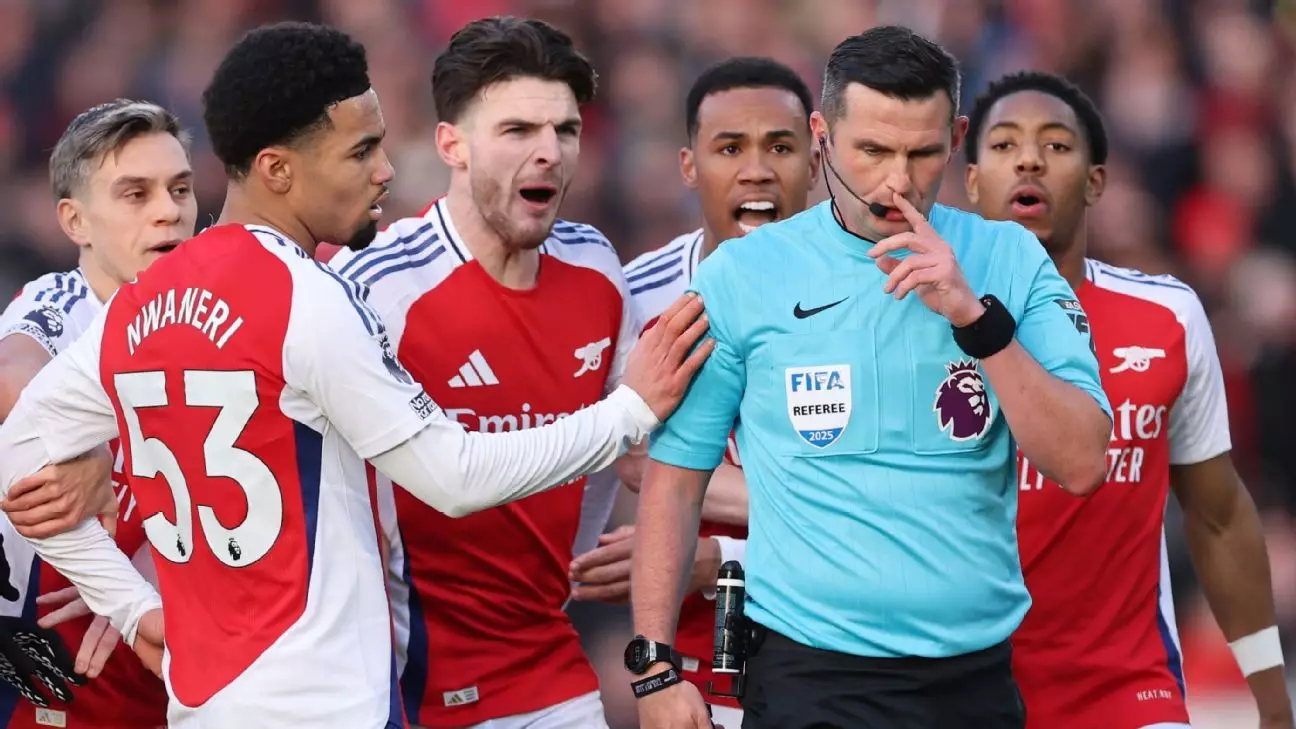In the high-stakes world of Premier League football, emotions run high, and discipline becomes a crucial aspect of maintaining order among players and management. After a recent clash with Wolverhampton Wanderers, Arsenal Football Club found themselves at the center of controversy when they were fined £65,000 ($82,000) for what the English Football Association deemed “improper behavior” exhibited by their players following the red card issued to Myles Lewis-Skelly. The incident, which transpired in the 43rd minute of the match, raises significant questions about player conduct, managerial influence, and the overarching regulations governing professional football.
The match itself concluded in Arsenal’s favor with a narrow 1-0 victory, secured by Riccardo Calafiori’s decisive goal, leaving the red card’s aftermath lingering in the background. Just three days later, the red card handed to Lewis-Skelly was overturned, an action that, while potentially seen as a corrective measure, did nothing to mitigate the initial response of the Arsenal players toward the officiating crew led by referee Michael Oliver. Despite the club’s insistence that their reaction was civil and non-threatening, the fine was imposed, illustrating a clear distinction between their perception and the regulatory body’s interpretation of the events.
The Regulatory Commission, which assessed the situation after a comprehensive hearing, published a statement that underscored the seriousness of the complaint against Arsenal. In it, they cited the presence of up to nine Arsenal players crowding around the referee, an act that can undeniably lead to a challenging environment for officiating professionals.
Arsenal’s defense highlighted their players’ non-aggressive demeanor, claiming there were no provocative actions amidst their reactions. However, the FA emphasized that the sheer number of players surrounding the referee compromised the integrity of the match. The critical point made by the FA—that the overturning of the red card did not excuse the players’ behavior—further emphasizes the doctrine that accountability must be maintained regardless of outcomes. Such a stance conveys an unsettling precedence: reactions to officiating decisions should not be based on the consequences of those calls.
Implications for Arsenal Moving Forward
More than just a monetary penalty, this incident shines a spotlight on Arsenal’s broader challenges this season, particularly with maintaining discipline within their ranks. The club currently faces scrutiny for having accumulated the highest number of red cards in the Premier League, a statistic that could point to issues of player control and managerial oversight. With manager Mikel Arteta at the helm, the need for a reevaluation of both tactical approaches and emotional management is paramount as Arsenal strives to close the gap on league leaders Liverpool.
The fine imposed on Arsenal serves as a stark reminder that integrity and sportsmanship are foundational to the spirit of football. As the season progresses, Arsenal must reconcile their competitive ambitions with the necessity for decorum, setting an example both on and off the pitch. Their future success will depend not just on talent, but also on maintaining respect for the laws of the game and the authority of match officials.

Leave a Reply